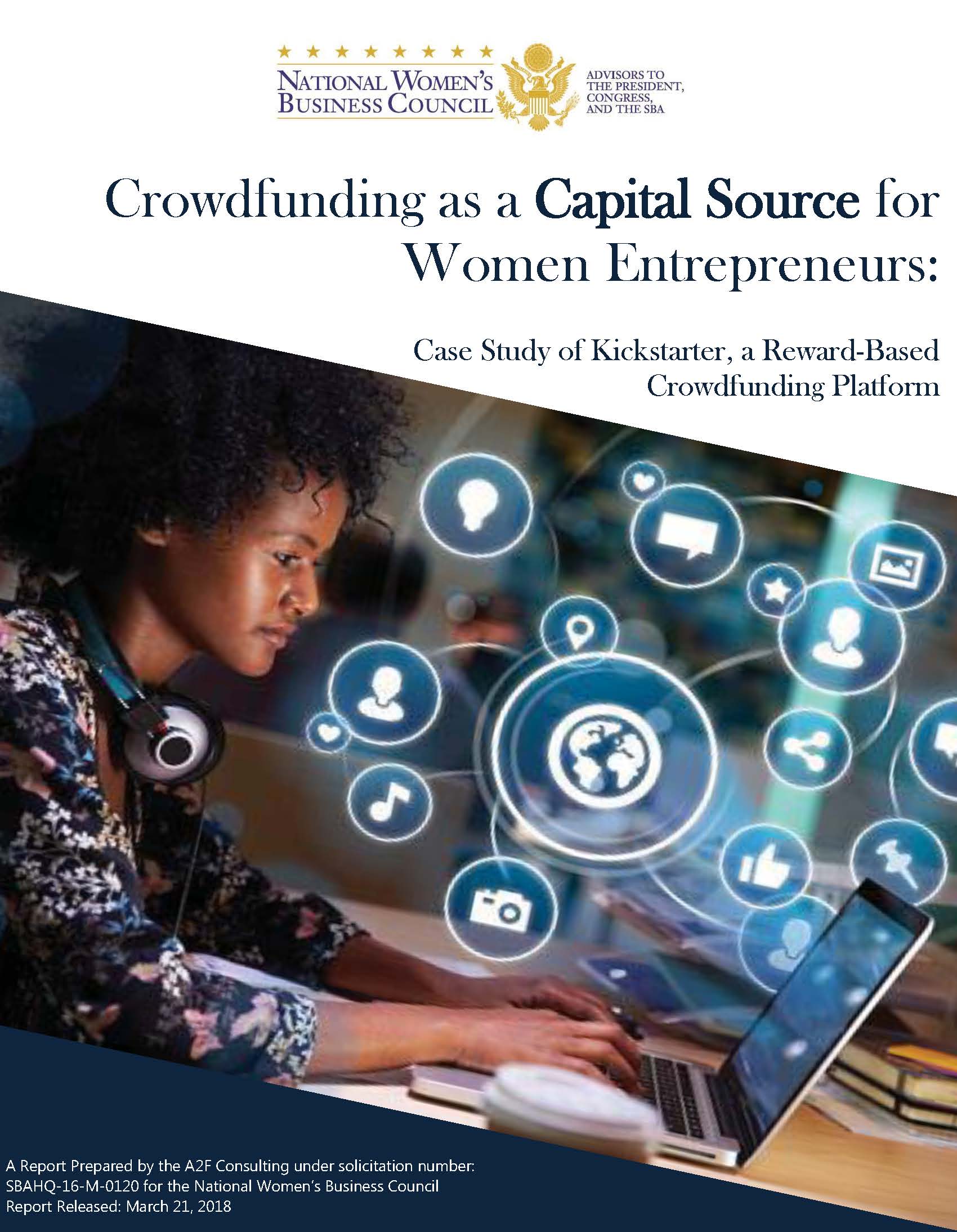Crowdfunding as a Capital Source for Women Entrepreneurs

Crowdfunding as a Capital Source for Women Entrepreneurs: Case Study of Kiva, a Non-profit Lending Crowdfunding Platform analyzes the role of an entrepreneur’s online social network and examine additional factors that may affect success rates in crowdfunding.
In 2017, Kickstarter and Kiva provided original data to the Council to explore gender help us identify the key determinants of success for women entrepreneurs, which would facilitate a better understanding of the policy implications of crowdfunding and its promise for small business finance in the U.S.
Some of the most notable results from both research reports include the following:
- The first 30 days of campaigns matter the most. On Kickstarter, as a fundraising campaign gets closer to its end, and especially after the first 30 days, the likelihood of success decreases substantially.
- Setting a realistic goal is essential. The funding goal should take into account a borrowers’ network size. On Kiva, for women with a smaller online network, greater success might be achieved by setting a goal less than $6,000.
- Your personal stories are powerful tools to reaching your funding goals. On Kiva, longer personal stories were associated with higher likelihood of success compared to other textual pitch categories.
- Network size matters, but how it is leveraged is more important. Both the number of Facebook shares and number of Facebook followers are predictors of success on Kickstarter, but the number of Facebook shares has notably larger effect in success rates.


